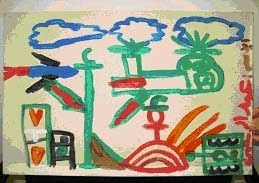
"Tonight was a great community event with so much spirit. Thank you all who particpated to make it happen.
With only short notice about 50+ New Yorkers gathered joined by a group of Palestinians visiting from out of town who were just passing by and so surprised and pleased to see us there. We began by ringing bells and holding sings with the messages LET FREEDOM RING and FREE GAZA...The police kept insisting that we could not stage a protest without a permit. But I reassured them that we did have a permit which gives us the right to assemble and free speech. They seemed confused when I mentioned the Constitution, as though that was not revelant or at least not there in Times Square. We held our ground though and our right to free speech and free assembly prevailed at least until the next time."
Now on December 21, another message has been sent out.
"Update from Gaza Freedom March,
We are determined to break the siege. We all will continue to do whatever we can to make it happen.
Using the pretext of escalating tension on the Gaza-Egypt border, the Egyptian Foreign Ministry informed us yesterday that the Rafah border will be closed over the coming weeks into January. We responded that there is always tension at the border because of the siege, that we do not fell threatened, and that is there are any risks, they are risks we are willing to take. We also said that it was too late for over 1,300 delegates coming from over 42 countries to change their plans now. We both agreed to continue our exchanges.
Although we consider this as a setback, it is something we've encountered and overcome before. No delegation, no matter how large or how small, that entered Gaza over the past 12 months has ever received a final OK before arriving at the Rafah border. Most delegations were discouraged from even heading out of Cairo to Rafah. Some had their buses stopped on the way. Some have been told outright that they could not go into Gaza. But afte public and political pressure, hte Egyptian government changed its position and let them pass.
Our efforts and plans will not be altered at this point. We have set out to break the seige of Gaza and march on December 31 against the Israeli blockade. We are continuing in the same direction.
Egyptian embassies and missions all over the world must hear from us and our supporters (by phone, fax and e-mail) over the coming crucial days. Let the international delegation enter Gaza and let the Gaza Freedom March proceed.
Contact your local consulate here: http://www.mfa.gov.eg/MFA_Portal/en-GB/mfa_websits/
Contact the Palestine Division in Ministry of Foreign Affairs, Cairo, Ahmed Azzam, e-mail: ahmed.azzam@mfa.gov.eg/
Sample Text
I am writing to express my full support for the December 31, 2009 Gaza Freedom March. I urge the Egyptian government to allow the 1,300 international delegates to enter the Gaza Strip through Egypt.
The aim of the march is to call on Israel to lift the siege. The delegates will also take in badly needed medical aid, as well as school supplies and winter jackets for the children of Gaza.
Please let this historic March proceed.
Alex, one of the founding creators of Women in Black, Melbourne, will be one of the delegates. She will be carrying a small home made freedom banner from WIB Melbourne. Please try to do something to let others know about this freedom march and the attempts to block it.
Joan Nestle for WIB, Melbourne





































